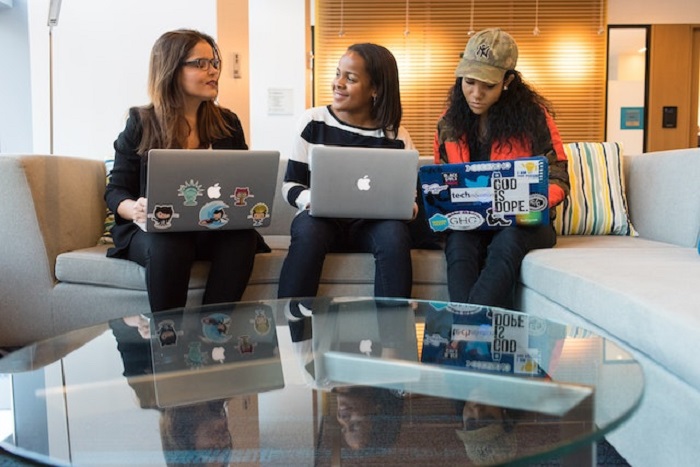
“The most dangerous of all dependencies is to depend on your powerful oppressor to free you and share power with you, because powerful people never train powerless people to take their power away from them.”
John Henrik Clarke
Introduction
The above quote from one of the towering giants of Afrocentric thought, the late John Henrik Clarke, speaks to the reality of present day power relations between Caucasians and Afrikans. Let’s amend this quote in light of the topic of this paper, Black financial empowerment.
“The most dangerous of all dependencies is to depend on your wealthy oppressor to free you and share wealth with you, because wealthy people (and nations) never train poor people (and nations) to take wealth away from them.”
John Henrik Clarke adapted by Paul Ifayomi Grant
Afrikan people need to be shocked out of our ‘waking coma’ and face the harsh realities of the world we are in. No one but ourselves is going to change our generally pitiful economic condition. This is a fiercely competitive world in which different groups compete against each other, whilst many of us are locked into an individualistic fantasy; thinking that success is a purely individual pursuit. Group identity, solidarity, trust, co-operation and accountability provide the platform for individuals to achieve economic success. This is why Afrikans are at the bottom of the economic pile wherever we live, despite the Oprahs, Bob Johnsons, athletes, entertainers etc.
TOP TIPS
o Buy Black (as far as possible) – check your shopping list and see how much expenditure you can transfer to a Black owned business.
o Learn about the ‘Local multiplier Effect’ – do a web search for the New Economics Foundation where you can find out about how to fill the holes in our economic bucket.
o Go shopping with a list – 70% of purchases are spontaneous.
o Create a household budget and review it regularly.
o Stop and count to 20 before making a spontaneous purchase – visualise your bank balance decreasing as the money leaves your account.
o Understand the difference between Wealth and Income – high income and wealth are not necessarily synonymous. A basic definition is that wealth = assets – liabilities
o Find out more about the concept of ‘residual income’
o Switch mortgage provider, utility provider etc. on a regular basis to get the best deal – most people are more likely to get divorced than switch mortgage provider
o Save for a hurricane not just a rainy day
o Balance your investments between High, Medium and Low risk investments – For a person aged 35 the balance should roughly be 35 : 35 : 30. As you get older your investment balance should move towards a greater proportion of lower risk investments.
o Read books, websites etc. that will teach you about financial literacy and economic relations between different groups of people.
o Teach your children about financial literacy – set up a (high interest) savings account as soon as they are born. Encourage them to save most of their pocket money. If you can afford it, match what they have saved at the end of the year. Discuss your household budget with your children (when they are old enough) so that they understand that there is not an unlimited supply of money from the hole in the wall!
o Do not accumulate debt buying depreciating assets e.g. cars, electronic equipment, designer clothes etc.
o Participate in some form of collective financial investment e.g. Pardner, ABDF Ltd (www.abdf.co.uk), credit union etc.
o Give money regularly to good causes that empower Afrikan people
o Remember, economics is a we game as well as a me game – i.e. groups that invest in their own communities are economically strong.
o Economic charity begins Black at home!
o Think Black, Buy Black, to get us Black on Track!
Recommended reading: BluePrint for Black Power by Amos Wilson, Black Economics by Jawanza Kunjufu, Rich Dad Poor Dad by Robert Kiyosaki and Sharon Lechter, Think and Grow Rich a Black Choice by Dennis Kimbro and Napoleon Hill, How Europe Underdeveloped Africa by Walter Rodney, Powernomics by Claude Anderson, http://www.moneysavingexpert.com
Paul Ifayomi Grant is a consultant and writer, husband and father. He has written three books: Niggers, Negroes, Black People and Afrikans, Blue Skies for Afrikans and Saving Our Sons strategies and Advice for the parents of Afrikan Teenage Sons. He will be publishing a fourth book Sankofa The Wise Man and his Amazing friends in October 2006. He is involved in delivering rites of passage programmes, educational advocacy, and in 1996 founded the ABDF Ltd, a community economic development company which will be investing in Ghana in 2007.
You can purchase his books at http://www.houseofknowledge.org.uk where you can also read chapters from his books and other unpublished essays. Ifayomi can be contacted at ifayomi@ntlworld.com or on 0115 9109835.
Article Source: https://EzineArticles.com/expert/Paul_Grant/38135
Article Source: http://EzineArticles.com/305360

